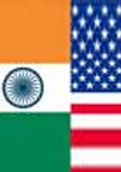President Putin’s Visit to India
Vladimir Putin's visit to India on January 25-26, 2007 provided fresh impetus to the strategic partnership between the two countries. The visit reinforced the interests of both states in maintaining their traditionally close and friendly relationship and in strengthening a multipolar world order.
- Nivedita Das Kundu
- January 30, 2007







